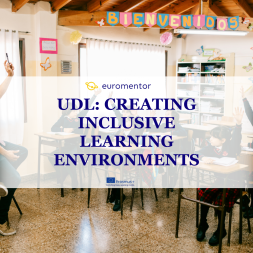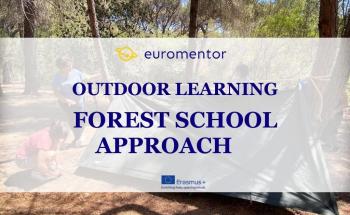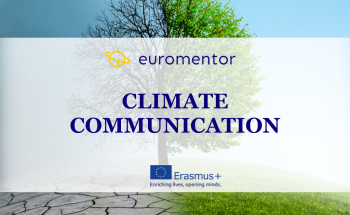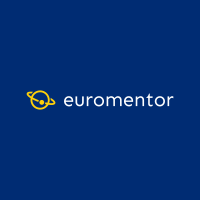
Universal Design for Learning: Creating Inclusive Learning Environments (Barcelona, Spain)
Participants in this course will develop a comprehensive understanding of Universal Design for Learning (UDL) principles, including its foundations, philosophy, and research-based strategies. This knowledge will enable educators to create learning environments that are inclusive and accessible to a wide range of learners, regardless of their abilities, learning styles, or backgrounds.
Description
- Throughout the course, educators will gain skills in implementing differentiated instruction strategies. This involves tailoring lessons to accommodate various learning styles and abilities, ensuring that every student can engage with the curriculum effectively.
- Accessible classroom design is another crucial aspect of the course. Participants will learn the principles of creating physically and digitally accessible classroom environments to support all students, fostering a truly inclusive learning space.
- Additionally, educators will discover how to effectively integrate technology and assistive tools into their teaching practices to enhance accessibility and engagement.
- The course emphasises a collaborative approach, helping teachers work effectively with support staff, special education professionals, and parents to create a unified learning experience. By studying real-world case studies and examples, participants will have the opportunity to apply UDL principles to their teaching practices, ensuring that they can integrate UDL effectively in their classrooms.
- Course Category: Wellbeing, Inclusion and Classroom Management
- Related Courses: Art Therapy Approaches for Students with SEN, Social and Emotional Learning (SEL) for Teachers: Building Stronger Classrooms, Inclusive Education: All Children Are Special
- You can also directly contact us by email: info@euromentor.es
Learning objectives
Comprehensive Understanding of UDL: Gain a comprehensive understanding of Universal Design for Learning (UDL) principles, including its foundations, philosophy, and research-based strategies.
Accessible Learning Materials: Learn how to design and adapt instructional materials and resources that are accessible and accommodating to the diverse needs of students, ensuring inclusivity.
Flexible Assessment Strategies: Acquire the skills to implement assessment techniques aligned with UDL principles, providing equitable assessment methods for all learners.
Differentiated Instruction: Develop the ability to implement differentiated instruction strategies, allowing for tailored lessons that accommodate various learning styles and abilities.
Accessible Classroom Design: Understand the principles of creating physically and digitally accessible classroom environments to support all students effectively.
Technology Integration: Learn how to integrate technology and assistive tools to enhance accessibility and engagement in the classroom.
Collaborative Teaching: Develop effective collaboration and teamwork skills, allowing for cooperative work with support staff, special education professionals, and parents to create a unified learning experience.
Practical Application of UDL: Apply UDL principles through case studies and real-world examples, ensuring the integration of UDL in teaching practices.
Commitment to Continuous Improvement: Cultivate a commitment to ongoing self-assessment and improvement in the implementation of UDL, fostering a culture of lifelong learning and professional growth in education.
Methodology & assessment
Interactive Workshops: The course employs a hands-on approach, featuring interactive workshops, group discussions, and collaborative activities.
Peer Learning: Participants engage in peer-to-peer learning, benefiting from the diverse backgrounds and experiences of their fellow educators.
Practical Application: The training emphasises the practical application of concepts learned.
Assessment:
Formative Assessment: Continuous assessment methods are employed throughout the course, including quizzes, group presentations, and reflective journals.
Final Project: Participants are required to develop a final project that incorporates the knowledge and skills gained during the course.
Course Evaluation: At the end of the course, participants are asked to complete an evaluation form, offering insights into the effectiveness of the training program.
Certification details
Our courses are in line with the Erasmus+ Quality standards for courses under Key Action 1 (learning mobility of individuals)
Participants are required to attend a minimum of 80% of the course sessions. Additionally, active engagement and participation in group discussions and practical activities are encouraged to enhance the learning experience.
Upon the successful completion of the training course, participants will obtain;
- Certificate of Attendance: includes the name of the participant and the trainer, the location, the dates, learning hours and competences acquired.
- Learning Agreement(s)
- Europass Mobility Document(s)
Pricing, packages and other information
-
Price:400Euro
-
Package contents:Course
Additional information
-
Language:English
-
Target audience ISCED:Primary education (ISCED 1)Lower secondary education (ISCED 2)Upper secondary education (ISCED 3)
-
Target audience type:Head Teacher / PrincipalTeacherTeacher Educator
-
Learning time:25 hours or more
Upcoming sessions
More courses by this organiser

Teacher Resilience and Well-being: Nurturing Balance for Classroom Success (Barcelona, Spain)

Outdoor Learning: Forest School Approach (Barcelona, Spain)


